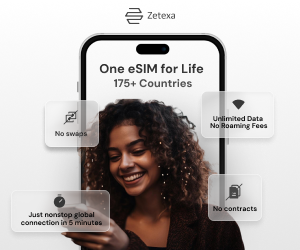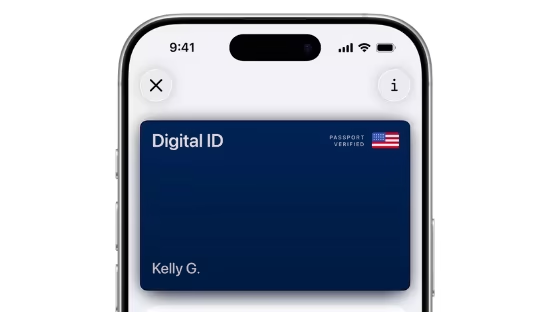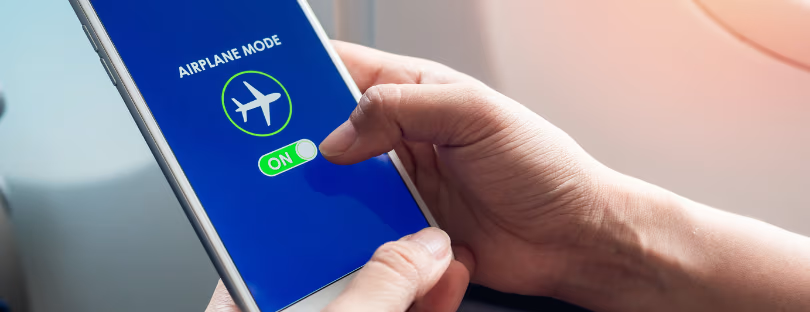
Roaming Fees Are Just Fines for Leaving Your Country
Let’s be honest: roaming fees aren’t really a “service.” They’re a punishment. A fine. A penalty you pay simply because you dared to cross a border with your phone in your pocket.
Think about it. When you land in another country, nothing about your phone changes. It’s the same piece of glass and circuits. The networks it connects to? They’re all just antennas and infrastructure, built and operated by telecom companies that already have agreements with each other. The tech is seamless, the handshakes automatic. Your phone doesn’t struggle or demand extra effort when it connects abroad—it just works.
So why are you suddenly being charged three, five, ten times more than at home? Because someone decided that “travel” should be taxed. Roaming fees are the airport security of mobile life: inconvenient, overpriced, and justified by stories that don’t really hold up under scrutiny.
Roaming: The Original Gotcha
Remember the first time you got slapped with a roaming bill? That sinking feeling when you opened the email or text from your carrier: “Your usage this month: €300.” For what? A few calls home and some Google Maps directions? It feels like you’re being punished for using your phone exactly the way it was designed to be used.
The industry likes to dress roaming up as a “premium service.” But what’s premium about it? The signal quality is no better. The speed is no faster. The coverage is often worse. The only thing “premium” is the price.
And that’s the heart of it: roaming is not about service, it’s about control. Telecoms know you don’t want to be disconnected when you travel. They know you’ll pay to stay online. So they set the price like a fine: painful enough to teach you a lesson, but justifiable enough to keep you coming back.
Why It Feels Like a Fine
Let’s use some simple comparisons.
- At home, you pay €10 for a gigabyte of data. Abroad? Suddenly it’s €50. Same gigabyte. Same tech. Different flag.
- At home, you get unlimited calls for a flat fee. Abroad? Each minute costs more than a decent cup of coffee.
- At home, texts are essentially free. Abroad? They’re suddenly worth 50 cents a pop.
Does that sound like a service? Or does it sound like a penalty for stepping outside your own borders?
If airlines charged you €20 every time you opened your suitcase abroad, you’d call it a scam. If hotels charged you extra for turning on the lights in a foreign city, you’d demand a refund. But with roaming, we’ve been trained to accept it as inevitable.
The “Costs” Myth
Telecoms love to claim roaming is expensive because it costs them to connect you to a foreign network. And yes, wholesale agreements exist. But those costs are fractions of what they charge you. The real markup is staggering.
It’s like paying €5 for a bottle of water at the airport. Sure, maybe it costs a little more to stock it there, but not that much more. The price is inflated because you’re captive, because you don’t have other options.
In truth, roaming is a cash cow. For decades, it’s been one of the most profitable parts of the mobile business. And like all cash cows, it survives because people either don’t know alternatives exist—or because those alternatives are hidden behind jargon, fine print, and confusing offers.
How the EU Proved the Point
The best evidence that roaming is basically a fine? The European Union killed it. In 2017, the EU passed the “Roam Like at Home” regulation. Suddenly, millions of people across 27 countries could use their phones abroad at no extra charge. Same prices, same bundles, no shock bills.
Did the networks collapse? No. Did telecoms go bankrupt? No. Did the world stop turning? Nope.
What happened was simple: carriers lost one of their favorite punishments. And travelers realized just how artificial roaming fees had been all along.
Roaming as Behavior Control
Here’s the darker truth: roaming fees aren’t just about money. They’re about control.
Telecoms know high fees change how you behave. You ration your data. You avoid calls. You stress about notifications. You turn off roaming altogether. In short, you behave like a “good” customer who won’t overuse the network.
That’s the psychology of fines. They’re meant to discourage behavior. In this case, the “bad behavior” is… living your life in another country.
The message is clear: stay home, or pay up.
The Alternatives They Don’t Want You to Know
Of course, you’re not powerless. Roaming feels like a fine, but you can choose not to pay it.
- Local SIM cards: Buy one when you land. A hassle, but often dirt cheap.
- eSIMs: Downloadable, instant, and increasingly available everywhere. They let you switch providers like you switch playlists.
- Wi-Fi calling and messaging: Not perfect, but good enough for many travelers.
Every time a traveler discovers these options, the punishment loses its sting. And that’s why roaming feels more outdated every year—it relies on ignorance and inertia.
Imagine a World Without Roaming Fines
What if roaming fees disappeared everywhere, like they did in the EU? Travelers would stop stressing about bills. Businesses would stop eating massive expenses just to keep staff connected abroad. Families would stay in touch without guilt.
And guess what? Telecoms would still make money. You’d still pay for your plan, still pay for data, still pay for connectivity. The difference is you wouldn’t feel punished for using your phone the way it was meant to be used.
The Bigger Picture: Borders and Punishment
At its core, roaming is just another example of how borders create artificial barriers. You cross an invisible line, and suddenly the rules—and the prices—change.
It’s the same logic as customs fees, tourist taxes, or those mysterious “resort fees” hotels love to tack on. The system doesn’t care if the service is different. It cares that you’ve moved, and moving makes you vulnerable.
Roaming thrives on that vulnerability. And until enough people push back, it will keep functioning like a fine for leaving your country.
So, What’s Next?
Travel is supposed to make us feel free. Free to move, explore, and connect. Roaming fees do the opposite. They trap you in anxiety and punish you for staying connected.
The good news is that technology is finally breaking this old model. eSIMs, global plans, Wi-Fi everywhere—these are cracks in the wall. And every crack makes the punishment weaker.
Maybe one day, roaming will be remembered like payphones or dial-up internet: an outdated tax we can laugh about. Until then, every time you see that “roaming charges may apply” warning, remember: it’s not a service. It’s a fine.
And no one likes paying fines.
- AIRHUB
-
eSIM for
Europe
34 countries
-
1 GB – 7 days – €2.99
3 GB – 30 days – €5.12
10 GB – 30 days – €11-09
- aloSIM
-
eSIM for
Europe
32 countries
-
1 GB – 7 days – €5.00
3 GB – 30 days – €13.00
10 GB – 30 days- €36.00
- GigSky
-
eSIM for
Europe
36 countries
-
1 GB – 7 days – €6.99
3 GB – 15 days – €11.19
10 GB – 30 days – €27.99
- iRoamly
-
eSIM for
Europe
39 countries
-
1 GB – 7 day – €6.83
3 GB – 15 days – €10.24
10 GB – 30 days – €18.77
- Maya Mobile
-
eSIM for
Europe
34 countries
-
1 GB – 7 days – –
5 GB – 15 days – €5.99
10 GB – 30 days- €13.99
- NOMAD
-
eSIM for
Europe
36 countries
-
1 GB – 7 days – €4.71
3 GB – 15 days – €10.27
10 GB – 30 days – €15.41
- UBIGI
-
eSIM for
Europe
29 countries
-
500 MB – 1 day – €2.00
3 GB – 30 days – €8.00
10 GB – 30 days – €19.00
- VOIA
-
eSIM for
Europe
34 countries
-
1 GB – 7 days – €2.69
3 GB – 15 days – €5.05
10 GB – 30 days- €11.70
The Best eSIM Finder brings together 100+ providers in one place, giving you a clear view of everything from data limits and business options to tethering, crypto payments, coverage, travel extras, refund policies, discounts, and reviews—so you don’t just compare plans, you understand which one truly fits your needs. Start exploring today and find the plan that fits you best.




















